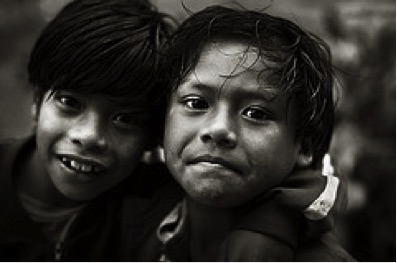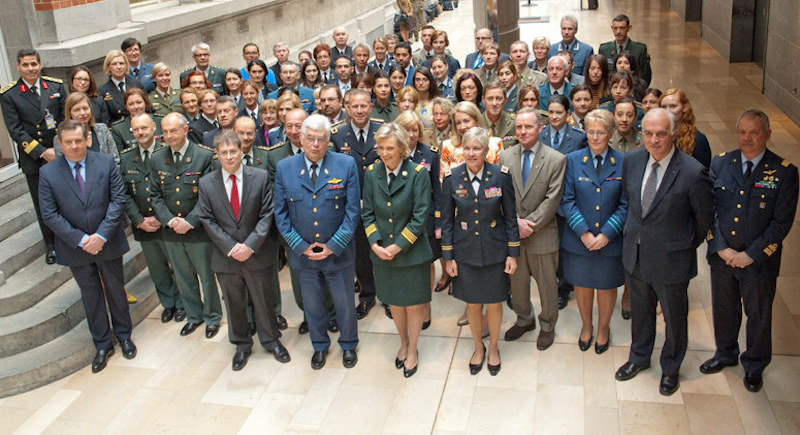The argument has been made that the formal definition of human rights and the modern day discourse on human rights is dominated by language and ideas emanating from the West. Human rights are seen as a western import permeating the developing world or the global south. However, it is important to recognize that the ideals behind human rights, such as equality, have long existed in in the global south. It is important to remember these voices and ideas in discussing human rights in order to have a more inclusive discourse. These are just some of the historical voices on human rights from different corners of the global south.
Nigeria : Margret Ekpo
Margret Ekpo was born in 1914, witnessing Nigeria emerge from the rule of colonial masters and into an independent state. She got in to politics by chance while attending meetings with her husband, often being the only woman at political rallies. However, she became more politically conscious and continued to participate in the emerging political affiliations. She also developed a passion for defending women’s rights. Ekpo held various political positions, she was one of the three women appointed to the House of chiefs in the 1950s and was a member of parliament from 1960 till 1966. Ekpo was a strong political activist, with the goal of engaging women in politics and mobilizing and encouraging them to participate in politics despite the opposition of many husbands at the time being against it. One of her most famous tactics came after World War II when there was a great scarcity of salt, an item which no household could be without. Ekpo bought all the available bags of salt to control its sale. She ordered that any woman who was not a member of the Women’s Association would not be sold to. As a result all the men released their wives to register in the Women’s Association.
India : Jyotiba Phule
Born in 1827, Phule was born at a time when it was considered unthinkable to educate girls. Yet Phule was ahead of his time. Through his own education he realized the importance and necessity of educating girls. He began by teaching his wife, who shared his beliefs, how to read and write. He later opened the first ever school for girls in 1848, and a bigger school in 1851. Phule was adamantly against child marriage and supported widow remarriage. Having suffered from the caste system himself, he fought against it establishing the ‘Satya Shodhak Samaj’ in 1873, which was a group which aimed to liberate the “lower castes” from exploitation. Phule believed in a society based on equality and unity.
Puerto Rico : Luisa Capetillo
Luisa Capetillo’s name goes unmentioned in many historical accounts although she dedicated her life to the labor movement in Puerto Rico and other parts of the world. Born in 1879, Capetillo was also ahead of her time. After being educated at home she started working as a reader in a tobacco factory where she first encountered Labor unions and became involved in 1905 by writing propaganda and travelling the country educating and organizing workers. She participated and organized key labor strikes including the Sugar Cane Strike of 1916 that lead to a 13 % salary increase for workers. She also travelled to the United States and to countries in South America to support workers there. Capetillo was a firm believer in equal rights for men and women. She was considered to be the first suffragist in Puerto Rico and was the first Puerto Rican woman to put her feminist ideas and theories in writing by publishing several essays and books. She took a strong stance for women’s rights, by famously being the first woman to wear pants in public in Puerto Rico. Her impact can be felt till this day.
A Legacy
These are only some of the voices that are often overlooked in the present day human rights discourse. Their work and ideas show us that it is important to remember that such voices have historically emanated from the global south and left a long lasting impact on both the global south and the rest of the world. It is vital to continue to remember their legacies when discussing human rights in order to avoid having western ideals and language dominate the human rights discourse and instead have a well-rounded and inclusive one.



